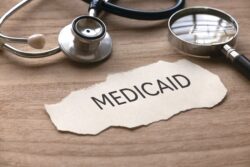Where Are Addiction Treatment Facilities in Maryland?

It is generally common knowledge that cities tend to have higher statistics of crime and corresponding drug and alcohol abuse. Baltimore, Maryland is no exception to this, with statistics and studies showing high volumes of dangerous drug trends, including overdose fatalities.
The good news is that while drug abuse is an alarming problem in the area, treatment centers with all different kinds of effective treatment methods exist to help address the concerns of addiction in Baltimore.
Substance abuse statistics in Baltimore
Drug and alcohol abuse is a pervasive issue in Baltimore, with alarming statistics highlighting its severity. According to the National Institute on Drug Abuse (NIDA), Baltimore has been identified as one of the cities with the highest rates of drug-related deaths in the United States. In recent years, there has been a significant increase in the number of drug overdoses, with opioids such as heroin and fentanyl being the leading cause of overdose deaths in the city.
One study noted that “Data provided by the Vital Statistics Administration (VSA) of the Maryland Department of Health (MDH) show the number of unintentional drug-and-alcohol-related overdose fatalities increased from 671 deaths in 2011 to 2,799 deaths in 2020, or by 317.1 percent in nine years.”
An additional source focused less on overdose statistics and more on drug use, resulting in the following: “In the Baltimore-Towson MSA, an annual average of 310,000 persons aged 12 or older used any illicit drug in the past year. This represents 14.3 percent of the MSA population and is higher than the rate for the State of Maryland (12.6 percent) and is similar to the national rate (14.7 percent).”
In addition to opioids, alcohol abuse is also a prevalent issue in Baltimore. According to the Centers for Disease Control and Prevention (CDC), excessive alcohol consumption is responsible for a significant number of deaths each year in the city. The impact of substance abuse on individuals, families and communities in Baltimore is devastating, leading to a range of negative consequences, including health problems, crime and economic hardship.
What are recovery options for addiction?
In response to Baltimore’s substance abuse crisis, various types of treatment are made available to help individuals recover from addiction. One of the most common forms of treatment is detox, where the body is rid of toxins from drugs and alcohol. Detox allows men and women to safely withdraw from substances and manage withdrawal symptoms in the controlled environment of a treatment facility.
Another type of treatment for substance abuse is behavioral therapy, which aims to help individuals change thoughts and behaviors related to drug and alcohol use. Cognitive behavior therapy (CBT) and dialectical behavior therapy (DBT) are provided in individual or group settings to help clients develop coping skills and strategies to avoid relapse.
Medication-assisted treatment (MAT) is another practical approach to addressing substance abuse in Baltimore. MAT combines medications, such as methadone or buprenorphine, with behavioral therapy to help reduce cravings, minimize withdrawal symptoms and maintain abstinence from drugs or alcohol in the long run.
In addition to these treatment options, various support services are also available. Peer support groups, such as Alcoholics Anonymous or Narcotics Anonymous, provide a supportive environment and safe space to connect with others who face similar challenges. These groups can offer encouragement, guidance and accountability as all members work together in the fight for sobriety.
Where in Maryland can I find addiction recovery programs?
Rehabilitation centers and residential treatment facilities are available in Baltimore and the surrounding area to provide intensive, round-the-clock care for individuals struggling with substance abuse. At Pyramid Healthcare, we offer countless options in various locations, including:
- California, MA Outpatient Treatment – Offering programs for men and women seeking treatment for alcohol use, opioid use disorder, methamphetamine use, problem gambling and co-occurring disorders
- California, MD Drug & Alcohol Residential Treatment Center – A long-term residential treatment and detox program for men, treating alcohol use disorder, opioid and other drug use, co-occurring disorders and problem gambling
- Charlotte Hall, MD Detox & Residential Treatment Center – This residential program is for men and women in St. Mary’s County, offering treatment for alcohol use disorder, opioid and other drug disorders, mental health disorders and co-occurring disorders
- Harford County, MD Detox & Residential Treatment Center – Residential treatment and detox center for men and women in Joppa, Maryland, treating substance use disorders, methamphetamine and other stimulant use, and co-occurring disorders; this facility also offers a methadone maintenance program for opioid addiction
- Prince George’s County, MD Detox & Residential Treatment Center – This detox & residential treatment center for men and women in Bowie, Maryland will provide treatment services for substance use disorders and co-occurring disorders.
In addition to our treatment facilities, Maryland Addiction Hotlines offer 24/7 assistance for those needing to talk with someone or seek help immediately.
Ready to begin addiction treatment?
If you or a loved one are struggling with substance abuse addiction, help is available. Whether you live in the Baltimore region or elsewhere in the state of Maryland, Pyramid Healthcare is proud to offer countless options to help you start your sobriety journey.
To contact someone who can help today, reach out online to Pyramid Healthcare or by calling 301-997-1300 anytime.
It is generally common knowledge that cities tend to have higher statistics of crime and corresponding drug and alcohol abuse. Baltimore, Maryland is no exception to this, with statistics and studies showing high volumes of dangerous drug trends, including overdose fatalities.
The good news is that while drug abuse is an alarming problem in the area, treatment centers with all different kinds of effective treatment methods exist to help address the concerns of addiction in Baltimore.
Substance abuse statistics in Baltimore
Drug and alcohol abuse is a pervasive issue in Baltimore, with alarming statistics highlighting its severity. According to the National Institute on Drug Abuse (NIDA), Baltimore has been identified as one of the cities with the highest rates of drug-related deaths in the United States. In recent years, there has been a significant increase in the number of drug overdoses, with opioids such as heroin and fentanyl being the leading cause of overdose deaths in the city.
One study noted that “Data provided by the Vital Statistics Administration (VSA) of the Maryland Department of Health (MDH) show the number of unintentional drug-and-alcohol-related overdose fatalities increased from 671 deaths in 2011 to 2,799 deaths in 2020, or by 317.1 percent in nine years.”
An additional source focused less on overdose statistics and more on drug use, resulting in the following: “In the Baltimore-Towson MSA, an annual average of 310,000 persons aged 12 or older used any illicit drug in the past year. This represents 14.3 percent of the MSA population and is higher than the rate for the State of Maryland (12.6 percent) and is similar to the national rate (14.7 percent).”
In addition to opioids, alcohol abuse is also a prevalent issue in Baltimore. According to the Centers for Disease Control and Prevention (CDC), excessive alcohol consumption is responsible for a significant number of deaths each year in the city. The impact of substance abuse on individuals, families and communities in Baltimore is devastating, leading to a range of negative consequences, including health problems, crime and economic hardship.
What are recovery options for addiction?
In response to Baltimore’s substance abuse crisis, various types of treatment are made available to help individuals recover from addiction. One of the most common forms of treatment is detox, where the body is rid of toxins from drugs and alcohol. Detox allows men and women to safely withdraw from substances and manage withdrawal symptoms in the controlled environment of a treatment facility.
Another type of treatment for substance abuse is behavioral therapy, which aims to help individuals change thoughts and behaviors related to drug and alcohol use. Cognitive behavior therapy (CBT) and dialectical behavior therapy (DBT) are provided in individual or group settings to help clients develop coping skills and strategies to avoid relapse.
Medication-assisted treatment (MAT) is another practical approach to addressing substance abuse in Baltimore. MAT combines medications, such as methadone or buprenorphine, with behavioral therapy to help reduce cravings, minimize withdrawal symptoms and maintain abstinence from drugs or alcohol in the long run.
In addition to these treatment options, various support services are also available. Peer support groups, such as Alcoholics Anonymous or Narcotics Anonymous, provide a supportive environment and safe space to connect with others who face similar challenges. These groups can offer encouragement, guidance and accountability as all members work together in the fight for sobriety.
Where in Maryland can I find addiction recovery programs?
Rehabilitation centers and residential treatment facilities are available in Baltimore and the surrounding area to provide intensive, round-the-clock care for individuals struggling with substance abuse. At Pyramid Healthcare, we offer countless options in various locations, including:
- California, MA Outpatient Treatment – Offering programs for men and women seeking treatment for alcohol use, opioid use disorder, methamphetamine use, problem gambling and co-occurring disorders
- California, MD Drug & Alcohol Residential Treatment Center – A long-term residential treatment and detox program for men, treating alcohol use disorder, opioid and other drug use, co-occurring disorders and problem gambling
- Charlotte Hall, MD Detox & Residential Treatment Center – This residential program is for men and women in St. Mary’s County, offering treatment for alcohol use disorder, opioid and other drug disorders, mental health disorders and co-occurring disorders
- Harford County, MD Detox & Residential Treatment Center – Residential treatment and detox center for men and women in Joppa, Maryland, treating substance use disorders, methamphetamine and other stimulant use, and co-occurring disorders; this facility also offers a methadone maintenance program for opioid addiction
- Prince George’s County, MD Detox & Residential Treatment Center – This detox & residential treatment center for men and women in Bowie, Maryland will provide treatment services for substance use disorders and co-occurring disorders.
In addition to our treatment facilities, Maryland Addiction Hotlines offer 24/7 assistance for those needing to talk with someone or seek help immediately.
Ready to begin addiction treatment?
If you or a loved one are struggling with substance abuse addiction, help is available. Whether you live in the Baltimore region or elsewhere in the state of Maryland, Pyramid Healthcare is proud to offer countless options to help you start your sobriety journey.
To contact someone who can help today, reach out online to Pyramid Healthcare or by calling 301-997-1300 anytime.








